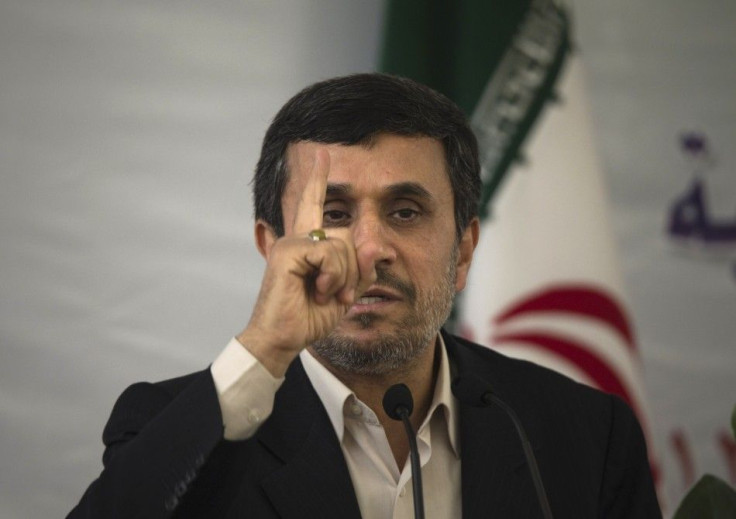Iran Claims Advances in Uranium Enrichment; Halts Crude Exports to 6 EU States

Iran has again raised global tensions to new levels by claiming that it has made advances in its uranium enrichment program.
Iranian state-controlled television stated that the country’s nuclear scientists have successfully built fourth generation uranium enrichment centrifuges and has also produced its own reactor fuel plates.
The TV authorities noted that the new centrifuges are made of carbon fiber which are speedier, produce less waste and occupy less space.”
As for the fuel plates, Iranian broadcasters stated that they were created for a Teheran research reactor whose fuel stock was running near empty.
In addition, state TV said significant progress has been made in 20 percent enrichment at the facility in Natanz, well beyond the enrichment activities which were already taking place there.
President Mahmoud Ahmadinejad is expected to confirm these new developments later on Wednesday.
Ahmadinejad has already asserted that Iran will never halt its uranium enrichment program.
James Reynolds, BBC’s correspondent in Iran, wrote: “The key factors in the centrifuge announcement will be exactly how many are produced and how efficient they are. Nuclear experts believe that sanctions will make it hard for Iran to get hold of the kind of materials it needs to make its centrifuges as efficient as possible.”
Reynolds added: “In theory, faster, more efficient centrifuges would shorten the timeline for the production of highly enriched uranium - should Iran choose to take that step.”
The state-controlled IRNA news agency also said that Iran’s chief nuclear negotiator Saeed Jalili dispatched a letter to the European Union’s (EU) foreign policy chief Catherine Ashton in which he declared: Iran welcomes the readiness… to return to [nuclear] negotiations in order to take fundamental steps toward further co-operation.
The United States and Israel believe Iran is developing nuclear weapons (a charge Iran denies). The U.S. and EU have already imposed stringent economic sanctions on Iran’s crucial oil industry in order to force Teheran into giving up its atomic energy program.
The UN’s nuclear watchdog, International Atomic Energy Agency (IAEA), which issued a damning report last November indicating Iran is pursuing a nuclear weapons program, is scheduled to send delegates to Iran next week to discuss the matter.
Separately, Iran said it has halted sending crude oil shipments to six European nations in response to EU sanctions. Press TV said the six states affected are Netherlands, Greece, France, Portugal, Spain and Italy.
Oil prices are up about 0.85 percent in New York trading.
According to reports, about 20 percent of Iran’s oil exports go to the EU, with Italy and Greece particularly dependent on Persian crude.
The EU has already placed an embargo on Iranian oil, which was due to become effective in July.
© Copyright IBTimes 2024. All rights reserved.





















